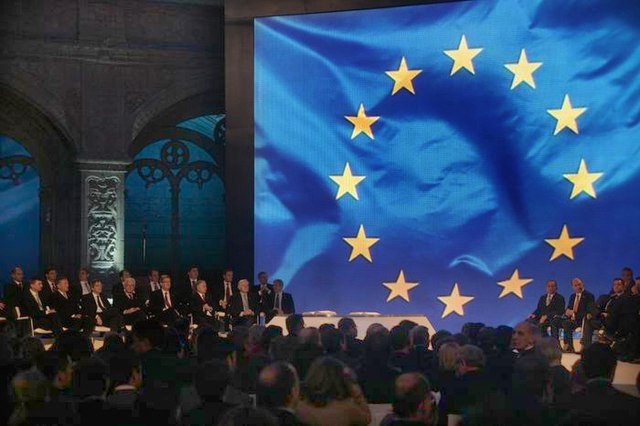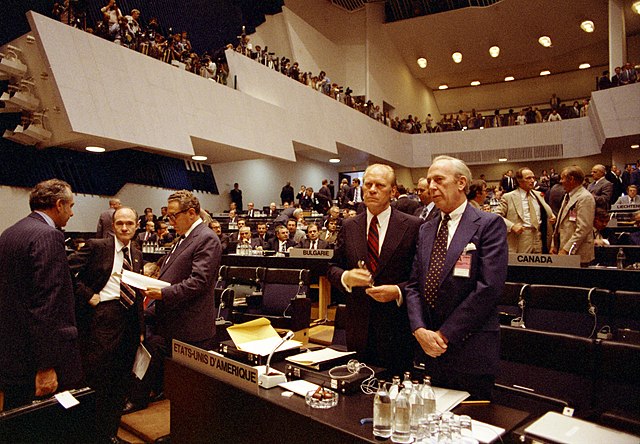The Treaty of Lisbon is an international agreement that amends the two treaties which form the constitutional basis of the European Union (EU). The Treaty of Lisbon, which was signed by all EU member states on 13 December 2007, entered into force on 1 December 2009. It amends the Maastricht Treaty (1992), known in updated form as the Treaty on European Union (2007) or TEU, as well as the Treaty of Rome (1957), known in updated form as the Treaty on the Functioning of the European Union (2007) or TFEU. It also amends the attached treaty protocols as well as the Treaty establishing the European Atomic Energy Community (EURATOM).
Signing in the Hieronymites Monastery of Lisbon, Portugal
50th anniversary in the summer of 2007, Berlin (Merkel and Barroso)
The rights charter bans, among other things, capital punishment and eugenics.
The Berlaymont Building, seat of the European Commission in Brussels.
The European Union (EU) is a supranational political and economic union of 27 member states that are located primarily in Europe. The Union has a total area of 4,233,255 km2 (1,634,469 sq mi) and an estimated total population of over 448 million. The EU has often been described as a sui generis political entity combining the characteristics of both a federation and a confederation.
Treaty of Paris (1951), establishing the ECSC
Signing ceremony of the Treaty of Rome (1957), establishing the ECC
Gerald Ford and the American delegation at the CSCE (1975)
Maastricht Treaty (1992), establishing the EU








